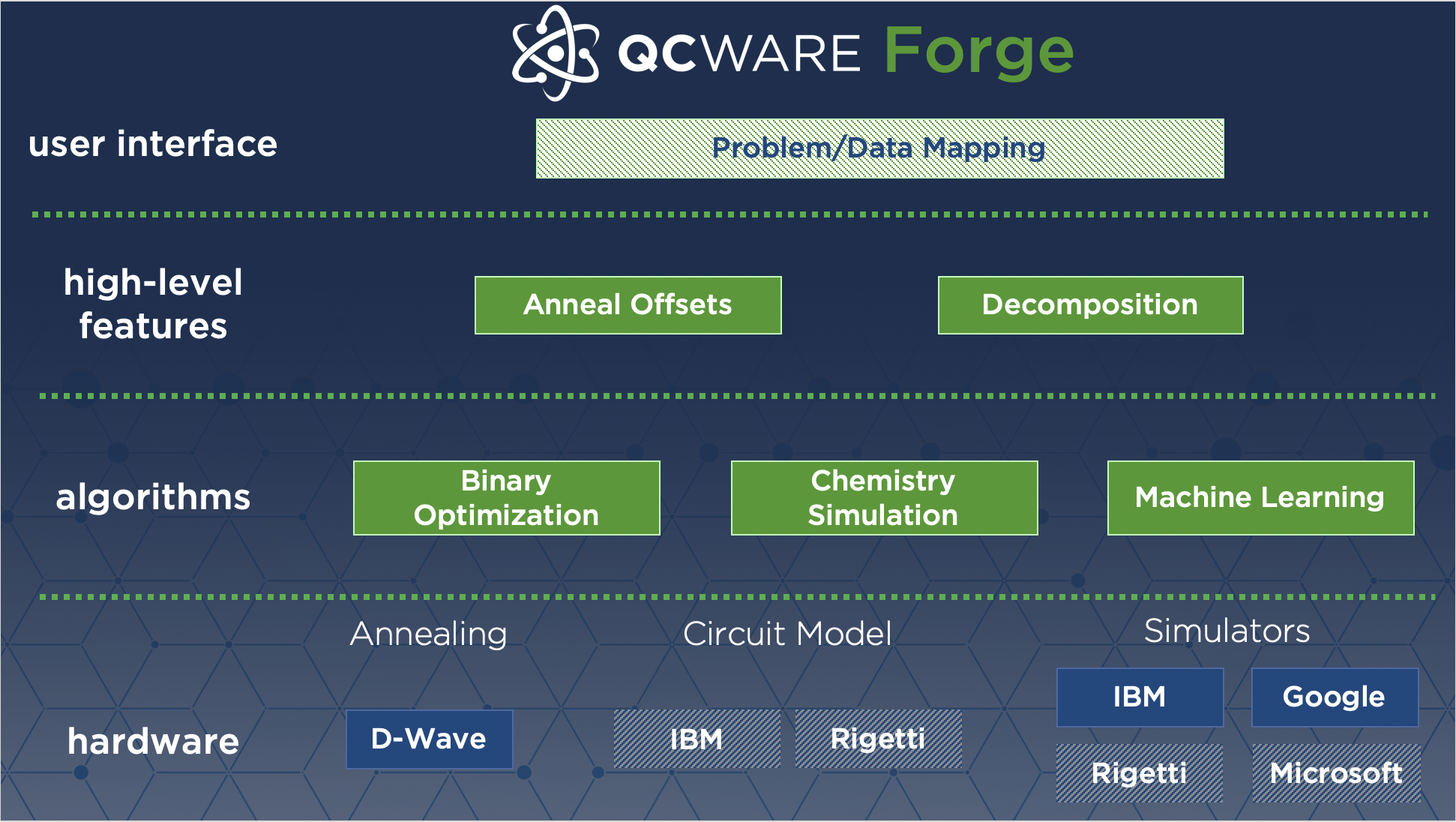Quantum computing is almost ready for prime time, and, according to most experts, now is the time to start learning how to best develop for this new and less than intuitive technology. With multiple vendors like D-Wave, Google, IBM, Microsoft and Rigetti offering commercial and open-source hardware solutions, simulators and other tools, there’s already a lot of fragmentation in this business. QC Ware, which is launching its Forge cloud platform into beta today, wants to become the go-to middleman for accessing the quantum computing hardware and simulators of these vendors.
Forge, which like the rest of QC Ware’s efforts is aimed at enterprise users, will give developers the ability to run their algorithms on a variety of hardware platforms and simulators. The company argues that developers won’t need to have any previous expertise in quantum computing, though having a bit of background surely isn’t going to hurt. From Forge’s user interface, developers will be able to run algorithms for binary optimization, chemistry simulation and machine learning.
“Practical quantum advantage will occur. Most experts agree that it’s a matter of ‘when’ not ‘if.’ The way to pull that horizon closer is by having the user community fully engaged in quantum computing application discovery. The objective of Forge is to allow those users to access the full range of quantum computing resources through a single platform,” said Matt Johnson, CEO, QC Ware. “To assist our customers in that exploration, we are spending all of our cycles working on ways to squeeze as much power as possible out of near-term quantum computers, and to bake those methods into Forge.”
Currently, QC Ware Forge offers access to hardware from D-Wave, as well as open-source simulators running on Google’s and IBM’s clouds, with plans to support a wider variety of platforms in the near future.
Initially, QC Ware also told me that it offered direct access to IBM’s hardware, but that’s not yet the case. “We currently have the integration complete and actively utilized by QC Ware developers and quantum experts,” QC Ware’s head of business development Yianni Gamvros told me. “However, we are still working with IBM to put an agreement in place in order for our end-users to directly access IBM hardware. We expect that to be available in our next major release. For users, this makes it easier for them to deal with the churn. We expect different hardware vendors will lead at different times and that will keep changing every six months. And for our quantum computing hardware vendors, they have a channel partner they can sell through.”
Users who sign up for the beta will receive 30 days of access to the platform and one minute of actual Quantum Computing Time to evaluate the platform.

